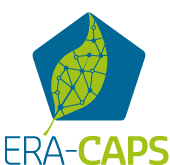Conservation and diversity in transcriptional regulation of developmental processes in crop and model plant species
- Acronym CISCODE
- Duration 1 September 2007 - 1 September 2010
- Project leader Gerco C. Angenent, Radboud University Nijmegen, The Netherlands
-
Other project participants
Yves van de Peer, Ghent University, Flanders (BE)
Jan Ulrich Lohrmann, Plant Systems Biology Laboratory University of Heidelberg, Germany
Lucia Colombo, University of Milan, Italy
Giorgio Morelli, National Research Institute for Food and Nutrition, Italy
Robert Sablowski, John Innes Centre, UK
Brendan Davies, University of Leeds, UK
-
Funding
Flemish Government, Department of Economy, Science and Innovation (EWI), Flanders (BE)
The German Research Foundation (DFG), Germany
Ministry of Education, University and Research (MIUR), Italy
Netherlands Genomics Initiative / Netherlands Organisation for Scientific Research (NGI/NWO), The Netherlands
Biotechnological and Biological Sciences Research Council (BBSRC), UK
- Total Granted budget € 2,210,517
Abstract
This project will use genomics technologies in a comparative context to harness the information present in the diversity of species to fill in the gaps in our understanding of model and crop plants. We will focus on a fundamental, economically important and experimentally tractable biological system, plant reproduction, and use genomic and post-genomic tools to model and manipulate the regulatory network at the centre of the reproductive process. Using a comparative approach, we aim to understand how evolutionary variation in non-coding DNA regions has led to variation in reproductive processes in (crop) species. To derive maximum benefit from a broad comparative analysis, we will focus on a key set of genetic interactions characterised in depth in the reference species, Arabidopsis. Our final aim of this project is to achieve an understanding of the cis-regulatory elements controlling reproduction in plants, to understand the evolutionary variation in this network and to benefit from this information to predictably manipulate the system.
